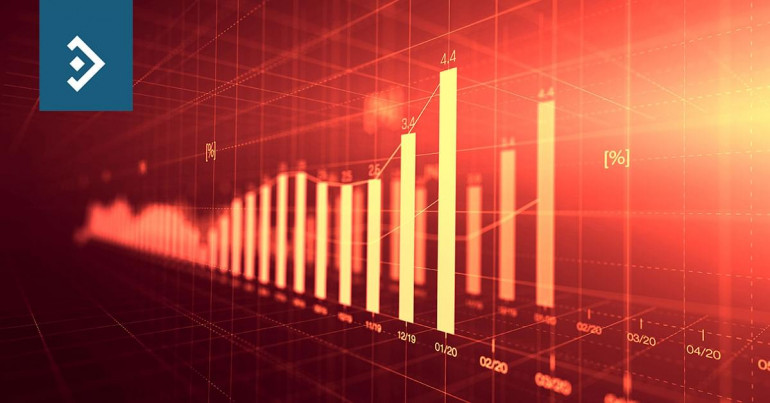
Bailey accused of slow reaction
Morning mid-market rates – The majors
19th October: Highlights
- Truss vows to carry on despite dwindling support
- Industrial production and capacity utilisation strong in September
- Economic sentiment continues to fall
GBP – Governor going to great lengths to defend record
As the markets were being battered by Covid, and the response to the Pandemic was being headed then Chancellor Rishi Sunak, Bailey initially flew under the radar. He didn’t build the same relationships with the market that his predecessor, Mark Carney had done.
As the Pandemic eased and inflation began to rise, Bailey found himself in the spotlight and was caught off guard by the pace at which prices began to rise and had to make unpopular decisions regarding interest rates.
He didn’t expect to be presiding over the end of an era of low interest rates, so was slow to react.
Although the MPC began its current cycle of interest rate hikes last December, the initial move was unpopular despite being just fifteen basis points, since it came immediately before Christmas.
The MPC has voted to hike interest rates by twenty-five basis points at every meeting since last December, and now faces charges from market participants of being unimaginative and predictable.
The base rate has now reached 1.75% and is still significantly below the neutral rate, which at the current rate of change will take another quarter to be reached.
Bailey and his colleagues were obviously concerned about slowing the economy to such an extent that they drove it into recession, but their overcautious performance has seen them fall between two stools.
Not only have their actions failed to halt or even slow the rate of inflation but the economy is facing a recession that could easily last for the whole of 2023.
The inflation report for September will be released today with the headline expected to reach 10% following 9.9% in August. This is certain to draw further criticism of Bailey for dithering and not increasing the rate of increase in rates that he has both threatened to increase on a number of occasions, while his G7 colleagues have been far more decisive.
The Prime Minister apologised yesterday for the turmoil her policies have brought to the UK economy, although she remains determined to carry on as leader.
With her support ebbing away, she is believed to be considering doing away with the triple lock on state pensions where they are guaranteed to increase by the highest of inflation, average wages and 2.5%. This was a Conservative Party manifesto pledge and is bound to draw more criticism.
The Chancellor’s withdrawal of several of the tax cuts announced in the mini budget has been met with widespread approval by the markets. While long-term borrowing costs remain high, the Pound now looks to be on firmer ground.
Sterling rose to a high of 1.1410 yesterday, but short-term profit taking saw it retreat to close at 1.1318.
Recommend our services and earn up to £75 per successful referral
USD – Public concerned about recession
While Jerome Powell, the Chairman of the Federal Reserve, famously miscalculated the end of the era of low interest rates, calling the rise in inflation transitory.
Overall, he has received a degree of credit from the wider population which contrasts with the vilification he receives daily from Democrat politicians who believe that he cannot be forgiven for being nominated by President Trump and losing them their seats in the midterms.
The Fed believes that it has hiked rates as fast as it was prudent to do without pushing the economy into recession. It has increased the size of increments to seventy-five basis points at the past thee
Powell has continued to believe in the mantra of data dependence and is certain to continue in the same vein in November.
The employment market is starting to show signs of a gradual cooling off and predictions have been made that job losses will begin in January
Since short term rates moved into restrictive territory which was likely to have happened following the FOMC meeting in July, the effect of the Central bank’s actions has been more obvious.
More hawkish economists and market commentators would have preferred to reach that point more quickly but data for output and confidence in both manufacturing and consumer spending has been ambiguous at best.
The next month or so will be critical for how the economy performs in 2023. If the Fed hikes by a total of 150 basis points at its last two meetings of the year, it may deepen the coming recession, while if the employment data sees a significant downturn, and they hike by only one hundred basis points inflation may continue to increase.
The Dollar is continuing to correct following the settling down of the markets in reaction to the UK Chancellor’s actions over the past couple of days.
The Dollar Index fell to a low of 111.77 in quite this trading, closing at 112.06.
EUR – Recession may have already started
The next rate setting meeting is due to be held on 27th October, which means that Christine Lagarde has just over a week to prepare her statement for the press, which is undoubtedly going to bring dissatisfaction to several of her colleagues.
Germany, which has been usurped recently in its dominance of monetary policy as the Union’s de facto paymaster, has had to get used to playing a secondary role to several heavily indebted and, in its view, financially undisciplined nations.
They cannot understand how the golden rule is not being adhered to. The Golden rule means that whoever owns the gold makes the rules.
With rising inflation totally unacceptable to the frugal five of Germany, Austria, The Netherlands, Belgium and Finland, some blame must be laid at the door of Bundesbank President Joachim Nagel, who has been content to remain in the background since his appointment, in complete contrast to his predecessor Jens Weidmann, who was not only the ECB’s most hawkish Central bank President but also its most vociferous.
Philip Lane, the ECB’s Chief Economist, commented recently that the Central Bank has been deliberately vague in setting targets for short term interest rates. He acknowledges that the neutral rate needs to be reached as quickly as possible, but the official line is that rates will need to rise at the next several meetings.
Christine Lagarde remains agnostic about interest rate increases but regarding inflation she is adamant that the Eurozone is not in recession and may be able to show positive growth in 2023 even if it is only 0.5%
It is impossible to see the economy surviving and inflation abating if there is a rapid and prolonged fall in the cost of energy, in particular gas.
One positive regarding energy supply is that Germany has fared far better than expected in replenishing its reserves of gas and now confidently predicts that it will not have to institute a series of blackouts, rationing energy between commercial and domestic users.
The Euro remains in the doldrums while the discussions regarding the economy continue. Yesterday, it climbed to 0.9875, and closed at 0.9854, its highest close in more than a week.
Alan Hill
Alan has been involved in the FX market for more than 25 years and brings a wealth of experience to his content. His knowledge has been gained while trading through some of the most volatile periods of recent history. His commentary relies on an understanding of past events and how they will affect future market performance.



